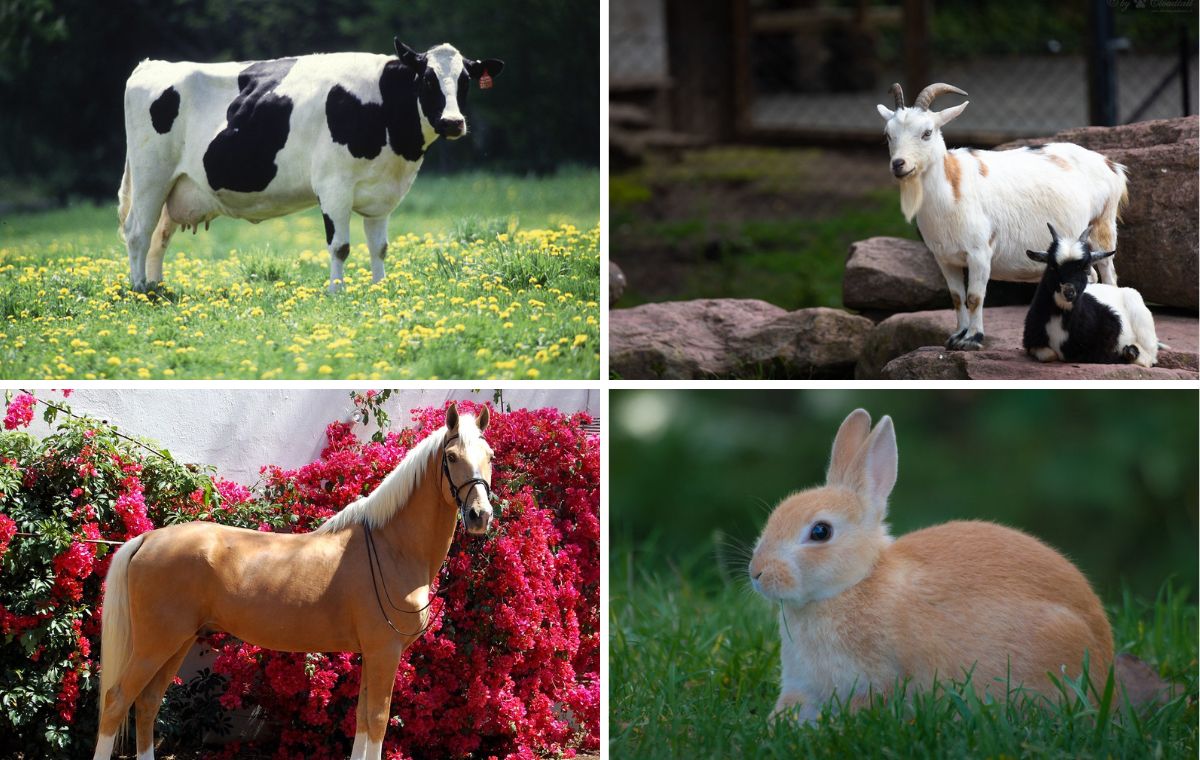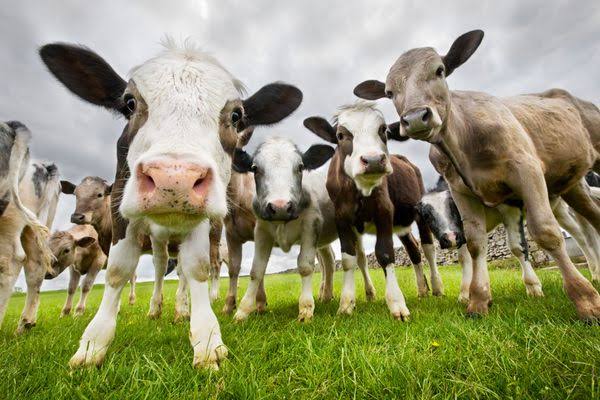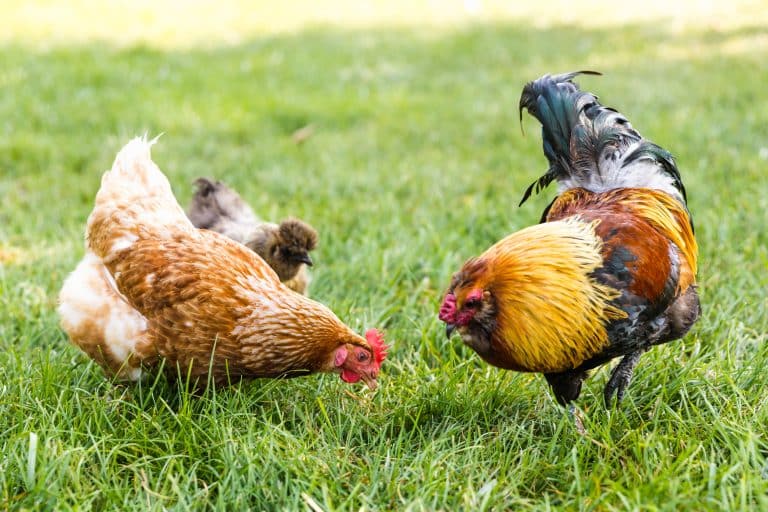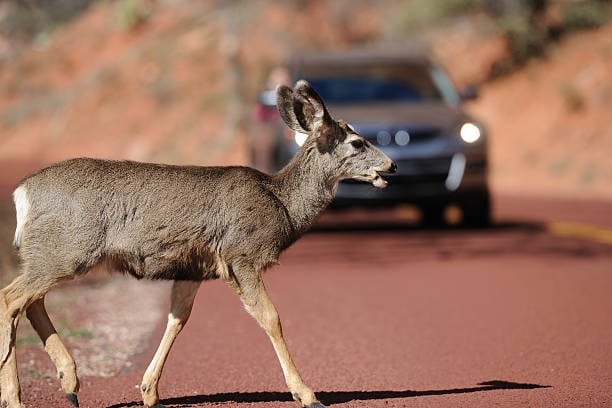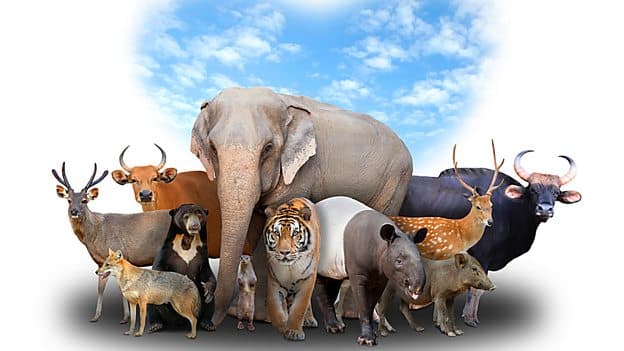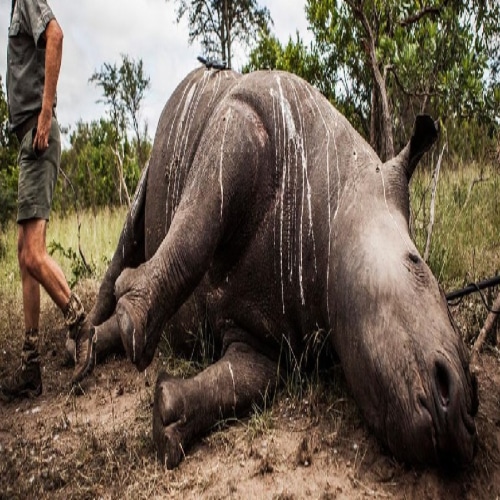Exploring the World of Farm Animals
For many years, people and some animals have formed a special bond. The people take care of these animals for their whole lives and, in exchange, get things to eat. Farm animals are the ones that give us things like milk for cereal, eggs for breakfast, and meat for delicious dinners.
These special animals are an important part of our daily lives and make sure we have enough food to eat. Some of the farm animals on farms are cows, chickens, pigs, and goats. Each of them has their unique qualities and talents.
In this blog, we will check out the fascinating world of farm animals, exploring their characteristics, health guides, and the benefits they bring us to our lives.
Some Amazing Farm Animals
Farm animals are special creatures that live on farms and help people in many ways, especially by providing nutritious and healthy food. Let us know the ten types of farm animals that make farms busy and full of life.
1. Chicken
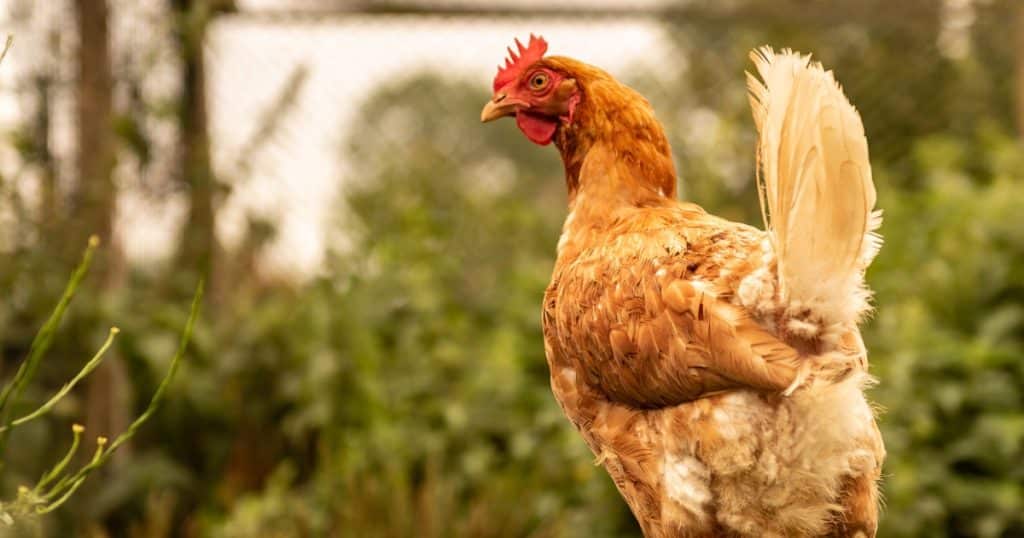
Chickens are the little birds that live on farms. People care for them because they give us yummy eggs and tasty meat. Eggs are not only yummy, but they also have many good things for our bodies, like protein and vitamins. When the chickens grow big and strong, they become a tasty part of our meals. People cook chicken in many ways, like roasting, grilling, or frying.
You can find chickens in different colors, like white, brown, and even black. Chickens also help farmers by eating bugs and small plants. They love to scratch and peck around the ground, looking for tasty treats. This keeps the farm clean.
2. Cow
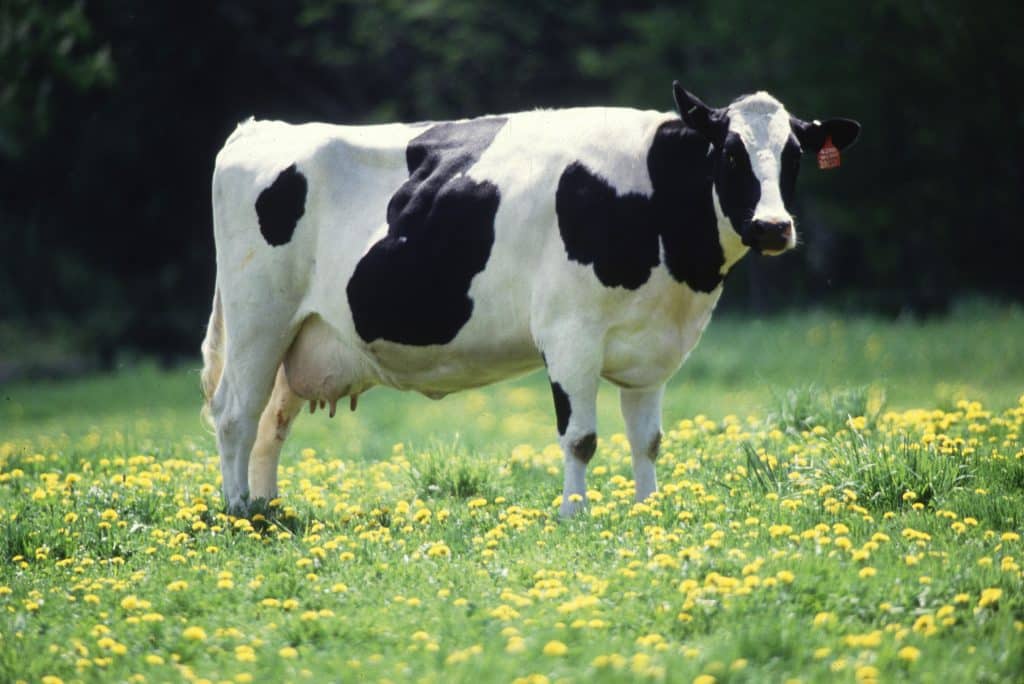
Cows are big, gentle creatures that are important to farms. They have a special job, which is to give us milk. This milk is then used to make cheese, yogurt, and butter. Cows come in different colors, like brown and black, and sometimes with different spots. One of the coolest things about cows is that they have four stomachs. This helps them eat lots of grass and hay, their favorite foods. Amul is a company that makes things like cheese and butter from milk obtained from cows.
Farmers make sure to give cows plenty of fresh water, too, so they stay healthy and happy. Some cows are also raised for their meat, which is called beef.
3. Pig
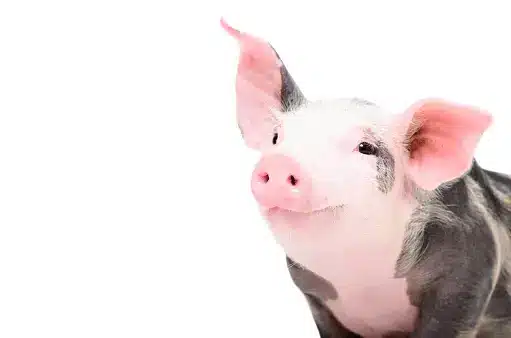
Pigs are known for their curly tails and pink skin. They love to explore and play. One of the things pigs love is eating. They have big appetites and enjoy munching on grains, vegetables, and sometimes fruits. Farmers make sure to give them a balanced diet to keep them strong and healthy. Pigs are also good at recycling food scraps. They can eat things humans can’t, like leftover vegetables and fruits. This reduces waste on the farm.
Some pigs grow up to become pork, which is a type of meat that they enjoy eating. Pigs must have enough space to move around and a cozy place to rest to live happily on the farm.
4. Horse
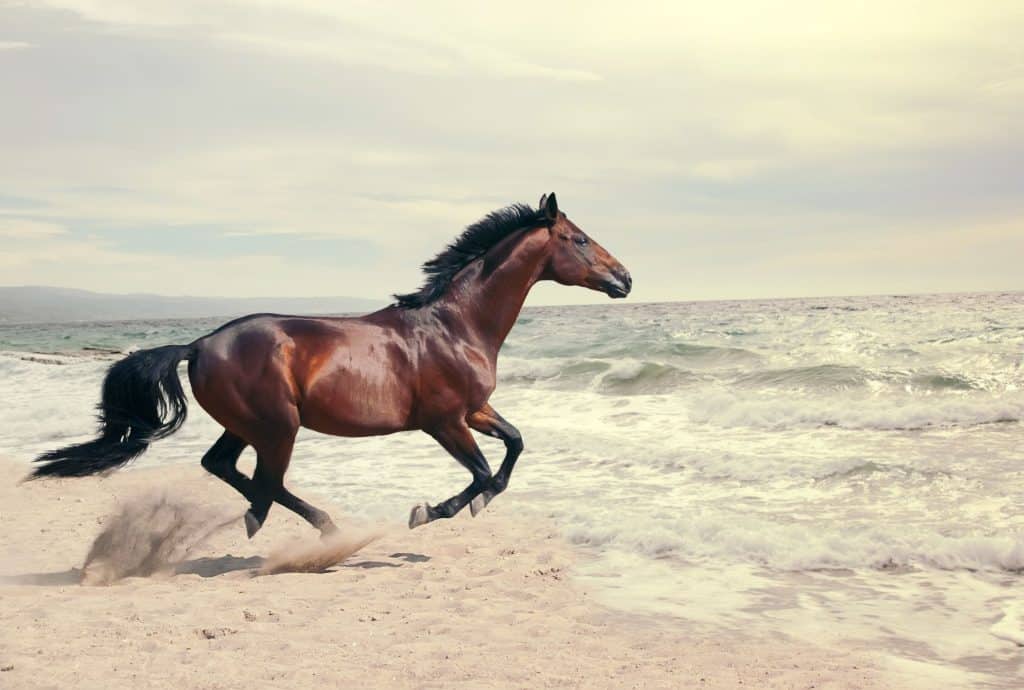
Horses are magnificent farm animals that have been helping humans for a very long time. They are big and strong with beautiful tails. Horses can run fast. This makes them perfect for activities like racing and riding. They have special hooves, like their special shoes, that help them run on different kinds of ground.
People and horses have a special bond. Some horses help humans by pulling wagons and plows on farms. Taking care of a horse is a big responsibility. They need good food, a safe place to stay, and regular exercise to stay happy and healthy.
5. Sheep
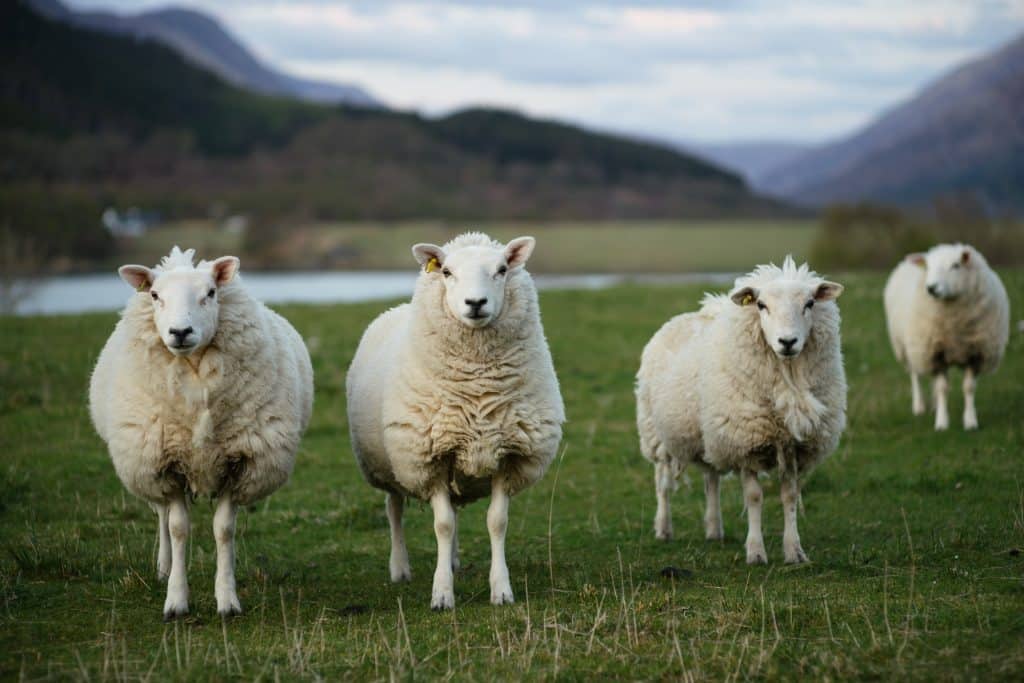
Sheep are special farm animals as they give us soft wool. They have warm coats that are mostly white. They are also known for their cute and curly horns. Another important trait of these farm animals is that they stay in groups and follow their leader. This is called a flock. They also feed on grass. They have special teeth that help them chew it well.
This is important for keeping the fields healthy. When the weather gets cold, their warm, woolly coats keep them cozy. Humans use their soft wool to make things like sweaters, blankets, and even carpets. Some sheep are even raised for their meat, which is called lamb.
6. Goat
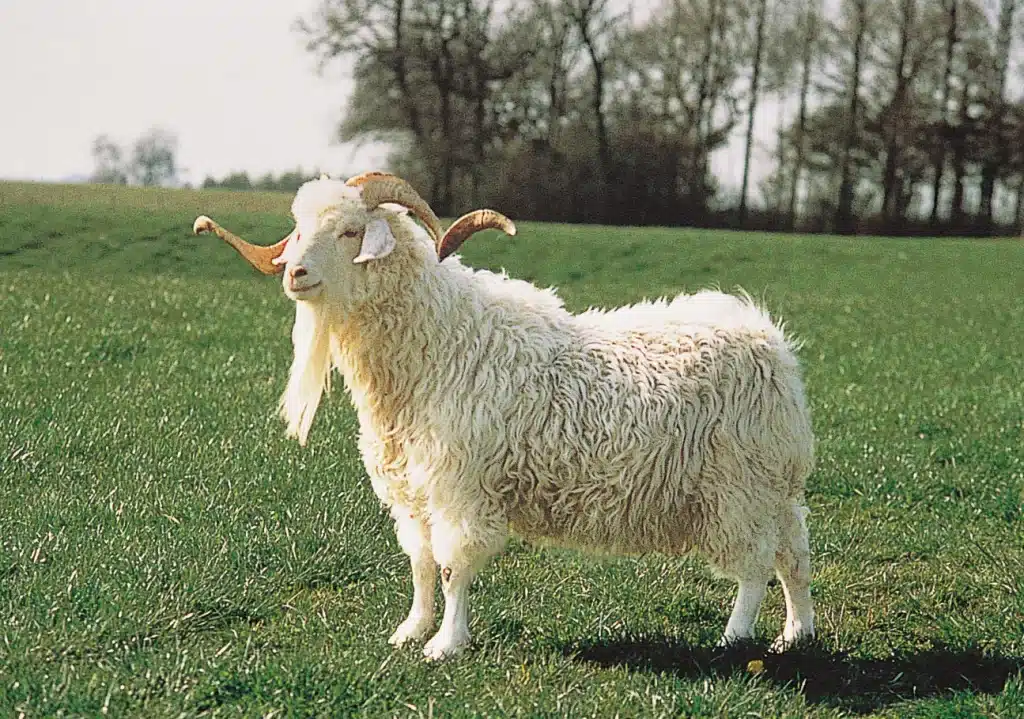
Goats are another important farm animals that have special horns on their heads that help protect them and make them unique. They are great climbers. They love to climb trees or rocky hills. Their special hooves give them a good grip. Goats are also good at eating different types of plants, like grass, leaves, and even weeds. This helps to keep the farm tidy.
Goats also give milk that is used for making cheese. Goat milk is nutritious, and many people enjoy its unique taste. They are social animals, so they like to be around other goats.
7. Duck
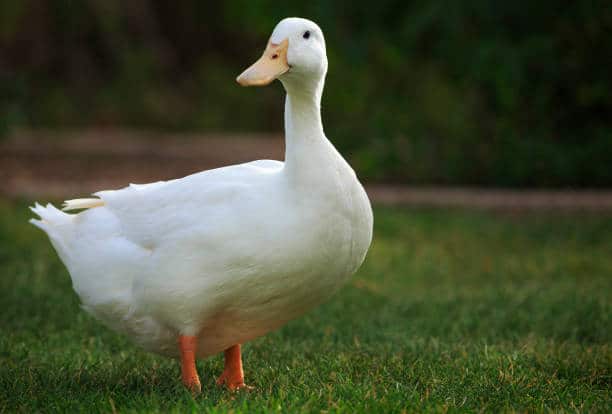
Ducks are friendly and water-loving birds that bring a lot of charm to farms. They have waterproof feathers that help them float on ponds, rivers, and small lakes. They have webbed feet. These special feet act like paddles in the water, helping them swim easily.
Each duck has its unique quack, and they use these calls to talk to each other. Ducks are not only cute, but they are also helpful on farms. Ducks also lay eggs that are delicious and can be used for cooking, like chicken eggs.
8. Turkey
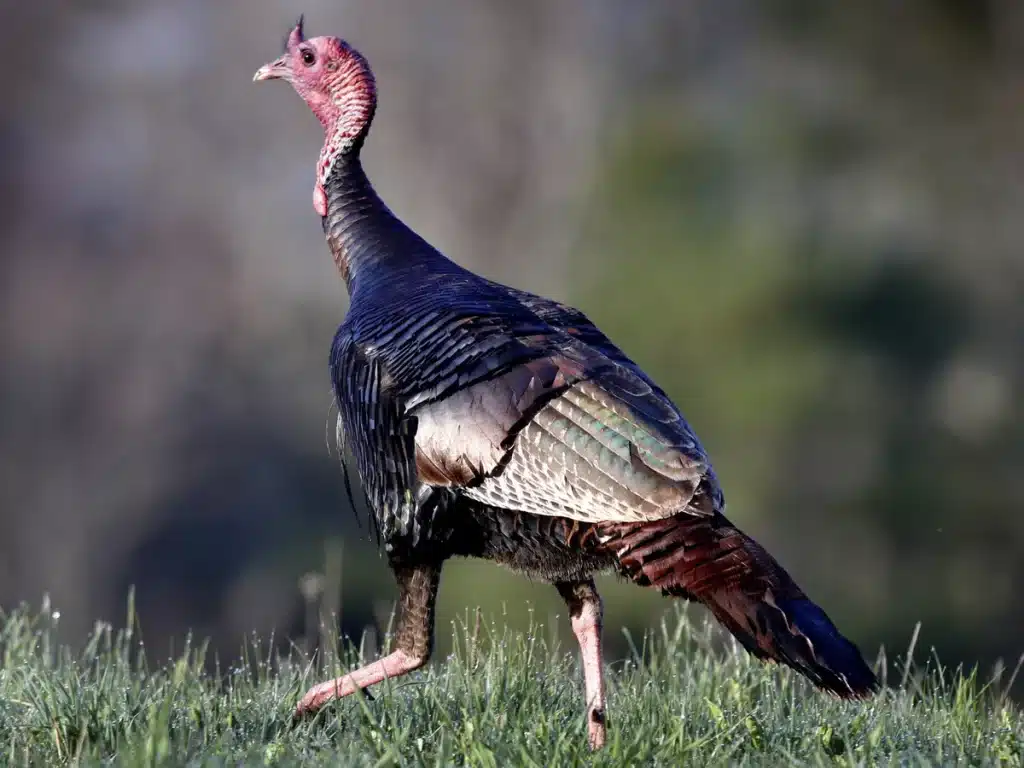
Turkeys are big birds known for their large tail feathers and wattle. Turkeys are also known for their special sounds called “gobble.” This is how they talk to each other.
Turkeys are raised on farms for their delicious meat, especially during Thanksgiving. They need a cozy place to stay and good food to eat to grow up healthy and strong.
9. Rabbit
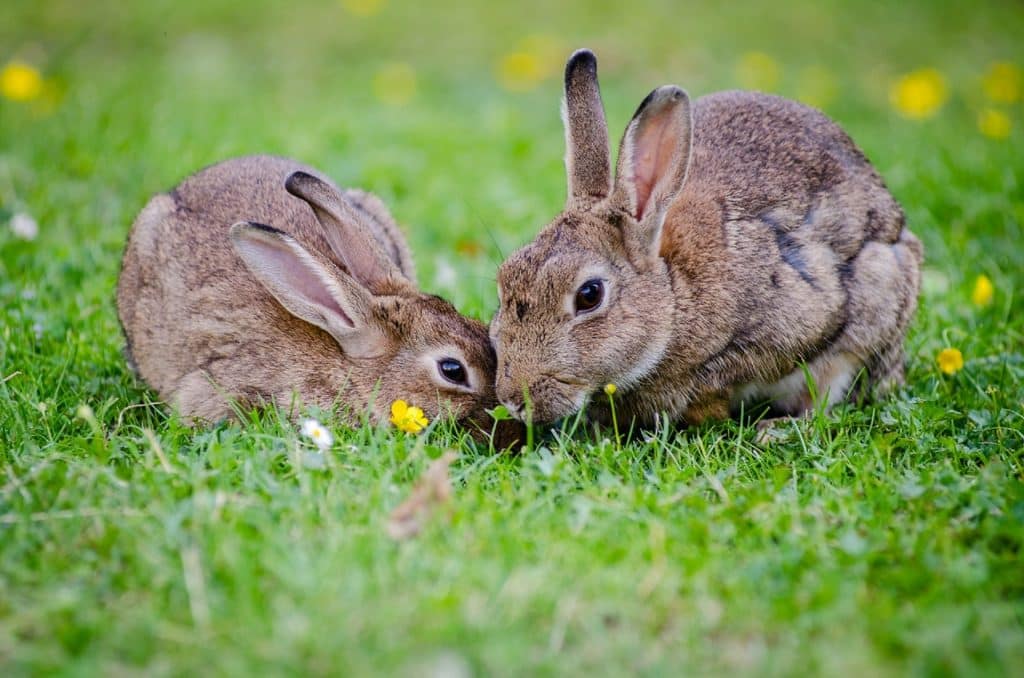
Rabbits are small, furry farm animals with long ears and fluffy tails. Rabbits are known for being quick and agile, which helps them to hop around and explore because of their strong back legs. They love to play and jump. They are also great and digging. They make cozy homes underground, called caves, to keep them safe.
They enjoy nibbling on things like grass, hay, and vegetables. It is important to keep them healthy. Some people keep rabbits as pets because they are cute and can be very affectionate. Rabbits are gentle and friendly creatures that bring much joy to families.
10. Donkey
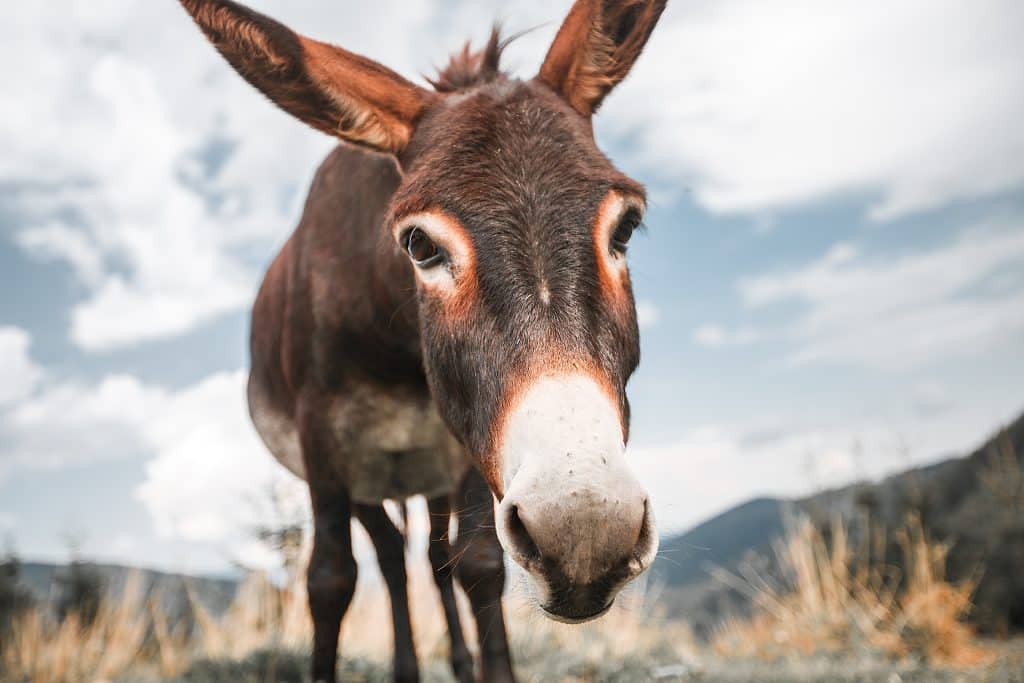
Donkeys are sturdy and kind-hearted farm animals. They have long ears and usually come in shades of gray, brown, or sometimes black. Donkeys are known for being a great helper to all the individuals. They are good at carrying heavy loads. Donkeys are like the reliable trucks of the farm. People also keep donkeys as pets because they are affectionate and make great companions.
Diseases Spread by Farm Animals
Farm animals are a crucial part of agriculture, providing essential resources like meat, milk, wool, etc. However, it is important to be aware that they can sometimes carry diseases that can affect humans.
1. Salmonellosis
Salmonellosis is caused by a bacteria called Salmonella. This germ is commonly found in the intestines of farm animals like cows, chickens, and pigs. If their waste contaminates the environment, it can spread to humans through contaminated food or water.
Prevention Tips: Always cook meat properly, wash your hands after handling animals, and avoid consuming raw eggs or milk.
2. E. coli Infection
E. coli is another type of bacteria that farm animals, especially cows, can carry. This germ can cause stomach problems in humans if we consume contaminated food or water.
Prevention Tips: Ensure that meat is thoroughly cooked, and practice good hygiene after handling animals or their waste.
3. Avian Influenza (Bird Flu)
Bird flu is a disease found in birds, especially chickens and ducks. Sometimes, this virus can spread to humans if they come into close contact with infected birds or their droppings.
Prevention Tips: Avoid close contact with sick birds, and ensure that eggs and poultry are properly cooked.
4. Q Fever
Q fever is caused by a bacterium called Coxiella Burnetii. It can be found in the urine, feces, and milk of infected animals like goats, sheep, and cattle. Humans can get infested by breathing in contaminated air or consuming unpasteurized milk products.
Prevention Tips: Avoid contact with birth products or other fluids from farm animals, and drink pasteurized milk.
5. Ringworm
Ringworm is a fungal infection that can affect the skin of animals like cows, sheep, and pigs. Although not too serious, it can be transmitted to humans through direct contact with an infected animal’s skin or contaminated surfaces.
Prevention Tips: Wear protective clothing when handling animals and wash your hands afterward.
6. Tuberculosis (TB)
Tuberculosis is a bacterial infection that can affect both animals and humans. It’s caused by a bacterium called Mycobacterium tuberculosis. In some cases, cattle can carry a similar strain called Mycobacterium bovis. Humans can get infected by consuming unpasteurized milk or close contact with infected animals.
Prevention Tips: Test and cull infected animals, and avoid consuming raw or unpasteurized milk.
7. Anthrax
Anthrax is a bacterial infection caused by Bacillus Anthracis. This disease can affect many animals, including cattle, sheep, and goats. Humans can contract anthrax through direct contact with infected animals or their products.
Prevention Tips: Vaccinate farm animals and handle any suspected cases with extreme caution.
8. Brucellosis
Bacteria from the genus Brucella cause brucellosis. It can affect animals like cattle, goats, and pigs. Humans can get infected by consuming contaminated dairy products or through contact with infected animals, especially during birthing.
Prevention Tips: Vaccinate animals and avoid consuming unpasteurized dairy products like powdered coconut milk, goat milk powder, raw walnuts, etc.
9. Lyme Disease
Lyme disease is transmitted by ticks, which can be carried by animals like deer and rodents in farm environments. When ticks bite humans, they can transmit the bacteria Borrelia burgdorferi, causing Lyme disease
Prevention Tips: Wear protective clothing, use tick repellents, and perform tick check after being in areas where ticks may be present.
10. Campylobacteriosis
Campylobacteriosis is a bacterial infection caused by campylobacter species. While farm animals like chickens and cattle can carry these bacteria, humans usually get infected by consuming contaminated food or water.
Prevention Tips: Practice good food hygiene, cook meat thoroughly, and wash your hands and cooking utensils properly.
Farm animals are vital in our lives, providing us with various resources. However, it’s important to be aware of the potential diseases they can carry. By following simple prevention tips, we can enjoy the benefits of farming while keeping ourselves and our families safe.
Tips to Keep Your Farm Animals Healthy

Taking care of farm animals is an important job. When your animals are healthy, they can go strong, give good milk, and make delicious eggs.
Here are some easy tips to keep your farm animals happy and healthy.
1. Provide Clean Water
Water is like a magical potion for animals. They need it every day. Make sure the water -is fresh and clean. Clean their water bowls regularly. If the water looks dirty, change it. It is very important to make sure their water is fresh and clean.
2. Give Them Good Food
Just like every human being, animals also need good food to grow and stay strong. They enjoy eating things like grains, which are like tiny seeds and grass. There is also special food made just for them. You can also consult a vet or a farmer who knows a lot about taking care of farm animals. They can advise what food will keep your animals healthy and happy.
3. Make A Cozy Home
Animals, just like us, need a home that is comfortable, safe, and nice. Some farm animals stay in a fenced-like area. The place should be clean and tidy. This helps to keep them healthy. Their home should also be a place that will be a shield for them to protect them from bad weather like rain, strong wind, and snow. Also, their home should be in the perfect temperature that is neither hot nor cold. So, make sure their home is perfect for them.
4. Keep It Clean
It is very important to keep the living space of the farm animals regularly cleaned. Take out the old straw or hay and put in fresh ones, as these are used as their bedding. This makes them feel cozy. Additionally, it helps to keep them healthy. Give your farm animals a clean place to live to make them happy.
5. Give Them Space to Move
Farm animals like stretching their legs and having space to run around. When animals have enough space, they feel happy. Make sure they have a big enough area to move and play. This way they can have fun also.
6. Watch Out for Signs of Sickness
Farm animals may also feel a bit down or unwell, just like human beings. They might not act like they usually do or look sad. It is important to pay attention to them. If you notice something unusual or strange, it is better to consult a veterinarian. They know how to keep your animals better and feel good. So check your animals regularly and get help when they are not feeling their best.
7. Protect Them from Predators
Farm animals also have enemy animals, like foxes, wolves, and big birds, who might want to harm them. To keep your animals safe, it is a good idea to build a strong fence around their living area to keep those enemies out. Also, lock the places or houses where the farm animals stay to ensure that no unwelcome visitors can get in and bother your animals while they are resting and stay away from any potential dangers.
8. Socialize
Animals, too, like to socialize. They also enjoy being with their friends or other animals. It is important to ensure your animals have other animals to play with. When they are around other farm animals, they feel happy and content, and this way, they can stay cheerful and thriving. Also, they don’t get bored easily.
9. Be Kind and Gentle
It is really important to treat the farm animals kindly. When you talk to them, use a calm and gentle voice. And when you touch them, do it with care and softness. This way, they will feel secure and joyful around you. They will be very grateful for your kindness and respect.
10. Listen to Your Animals
Even though animals can’t talk in words, they have their special way of communication. Paying attention to their sounds and how they move is important. For instance, if they are happy, they might wag their tails or make happy sounds. But if they are not feeling well, they might look tired or sad. So, observing and understanding the signals helps you care for them better.
Conclusion
There are many different kinds of farm animals, and each has their own special needs. Some give us milk, like cows and goats; others give us eggs, like chickens. Pigs are good for meat, and horses help with work on the farm.
Caring for these animals is important, and farmers work hard to ensure they are happy and healthy. Remember, each animal is like a helper on the farm. And they all play an important part in making sure we have the things we need to eat and use every day.
So, it is good to appreciate and take care of all the different types of farm animals.
Frequently Asked Questions
How Can You Keep Farm Animals Safe from Predators?
Protecting farm animals from predators involves several strategies. Secure fencing, especially at night, is crucial. Guardian animals like dogs or llamas can deter potential threats. Motion-activated lights and alarms can also be effective. Additionally, providing a safe shelter at night offers an extra layer of security.
How Can I Ensure My Farm Animals Have a Balanced Diet?
Providing a balanced diet for farm animals involves offering a variety of nutritious feeds. This may include grains, hay, fresh fruits, and vegetables. Consulting a veterinarian or animal nutritionist can help formulate a diet tailored to the specific needs of your animals. Regularly monitoring their weight, condition, and overall health is essential for adjusting their diet.
What are Some Signs of Distress or Illness in Farm Animals?
Farm animals can show signs of distress or illness through changes in behavior, appetite, and physical appearance. Look for symptoms like lethargy, loss of appetite, unusual vocalizations, labored breathing, or changes in stool or urine. Additionally, watch for signs of lameness, swelling, or discharge from the eyes, nose, or mouth. Quick intervention with a veterinarian can ensure the animal’s well-being.
How Do I Handle Heat Stress in Farm Animals During Hot Weather?
Preventing heat stress in farm animals is crucial. Provide ample shade, fresh water, and proper ventilation in their living spaces. Additionally, consider using fans or misting systems. Regularly check for signs of distress, such as heavy panting or excessive sweating, and take immediate action if any are observed.
How Can I Prevent Common Pests on My Farm without Using Harmful Chemicals?
Natural pest control methods can be effective. Implementing physical barriers like nets or row covers can also deter pests. Additionally, maintaining good sanitation practices, such as regular cleaning and proper waste management, can reduce pest habits.

